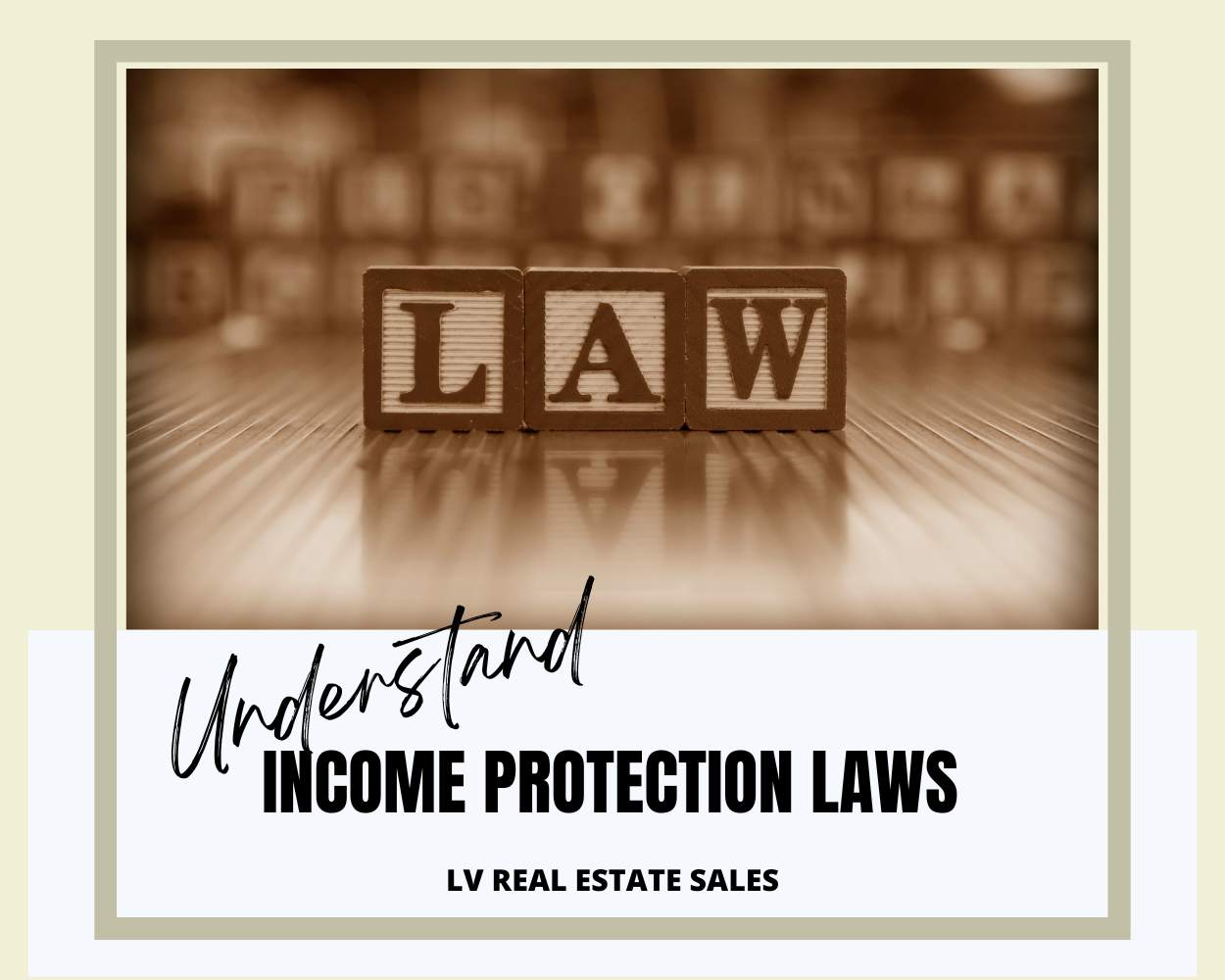Among the most significant areas to consider in life, financial stability takes the center stage because unexpected occurrences like accidents, diseases, unemployment, etc. may jeopardize the income of any person. Here we have the use of the State Income Protection Laws. Such regulations aim at protecting the income of workers in hard economic times so that people and households can get enough money when hit with uncertainty. Regardless of whether you are an employee, part-time worker or self-employed individual, knowledge of these laws can assist in the formulation of the informed options that you take concerning your financial security.
If you’re considering Relocation to Las Vegas and need a place to live while sorting out your finances, check out our listings of Las Vegas.
What Are State Income Protection Laws?
State Income Protection Laws refer to the rules that are adopted on the state level to assure that employees could have income supports or replace their wages in case they cannot work because of definite reasons. Some coverage, e.g. under federal programs such as Social Security Disability Insurance (SSDI) or Unemployment Insurance, exists, but many states extend this to a more comprehensive level including a system of their own income protection.
- Such laws can regard the following situations:
- Illness or injury temporary disability.
- Loss of jobs due to bad economies or loss of companies.
- Family leave to attend to a newly born baby or an ill family member.
- Work accidents that deny an employee wages.
Examples of State Income Protection Programs
State Disability Insurance (SDI): California, New Jersey, New York, Hawaii and Rhode Island have compulsory state disability insurance systems that reimburse the part of a worker wage in case of a loss of workforce by temporary impairment which is caused by a non work related disease or injury.
Paid Family Leave (PFL): A number of states including California, New York and Washington have family leave programs. They enable staff to earn salaries when they are off duty as parents after giving birth or adopting a child or when a member of their family got a serious illness.
Unemployment Insurance (UI) Extensions: Although unemployment insurance is federally directed, states normally extend the facilities when there is a high unemployment rate or when emergencies occur making workers have a longer time to get their state financially.
Wage Garnishment Protection: Most states time restrictions on the amount of wages that can be garnished by creditors and employers make sure that a worker maintains sufficient income to support his living.
Why State Income Protection Laws Matter
These laws cannot be overestimated. Without such, employees are likely to be in a bad position where they become bankrupt after suffering an illness, losing their jobs, or even family meltdown. And here is the reason why they are important:
Financial Security: The programs will guarantee a steady flow of income even when you can work.
Family Stability: According to Paid family leave Laws, the parents can connect with the newborns or attend to those they love without losing their income.
Workforce Health: The laws on income protection allow sick workers to take time off thus limiting further transmission of the illness which enhances higher productivity in the workplace.
Decreased Poverty Rates: These laws discourage large numbers of families experiencing hard times to descend into impoverished states since they substitute a portion of the lost income.
Challenges and Limitations
State Income Protection Laws are not an infallible option as there are some limitations to it. Benefits may represent only part of wages which can be anything between 50-70 percent and this may be a source of strain. There may also be eligibility limitations, like independent contractors/gig workers but states are starting to fill this gap. Also, the programs are funded by payroll tax, which implies that their financing is organized by employers and employees alike.
Helpful reading for Property Laws
- Local and State Foreclosure Laws
- Fair Housing Act
- What Is a Purchase Agreement
- What Is House Hacking and How To Get Started
- Should You Find an Agent or Lender First
- Why Are Manufactured Homes Hard to Finance in Las Vegas
- Rental Property Requirements in Las Vegas
- Can A Beneficiary Stop The Sale Of A Property
- What Is an ADU
How to Protect Yourself
To reap the maximum on income protection:
Learn your state’s laws: Go to your state labor department on the web and become familiar with the terms of state eligibility and state benefits.
Consider supplemental insurance: Supplemental insurance policies can cover the gap that state insurance plans leave.
Stay Informed: Regulations and benefits may twist and turn and being updated can enable you to access the available aid in times of need.
Final Thoughts
State Income Protection Laws are an important part of the foundation of economic security of millions of Americans. These laws pay out wage replacement and offer financial stability in the cases of sickness, injury, unemployment or family emergency reduce stress and can build a more robust workforce. No system is foolproof but learning how to take advantage of the state-offered protection is one of the best moves that you can put toward taking care of your financial future.
Richard Slezak, Las Vegas Realtor®

Agent License: S.0201790
Call: (702) 688-3508
MAIL: richardslezak@gmail.com
Address: 2298 W Horizon Ridge Pkwy #114, Henderson, NV 89052, USA






